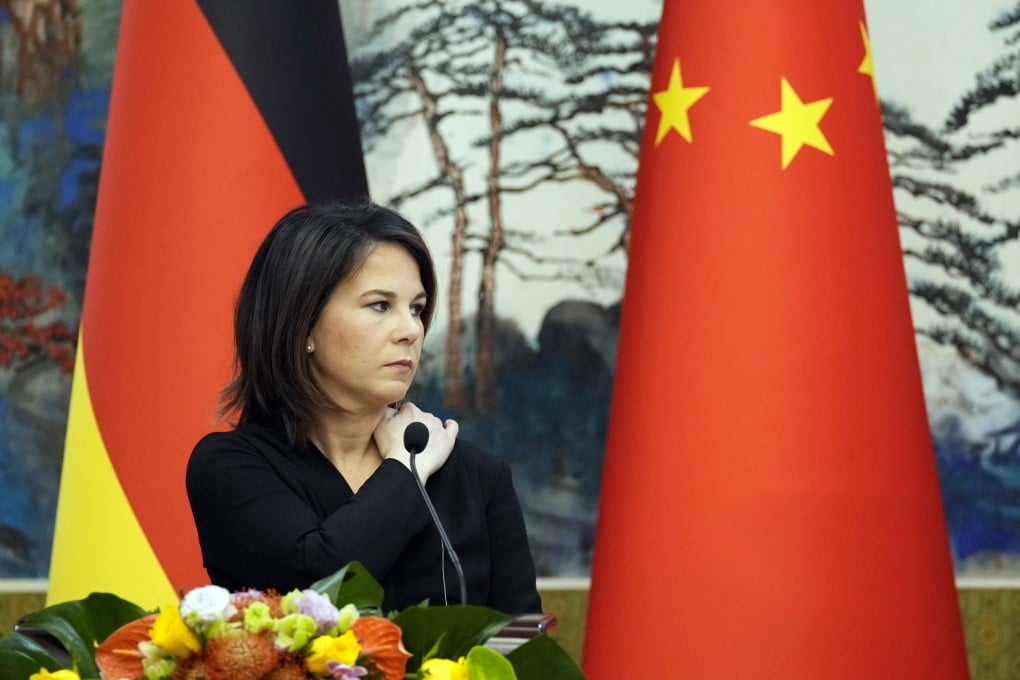Advertisement
Germany’s new China strategy marks break with past as new emphasis placed on de-risking
- Blueprint backs EU’s strategy and highlights economic and political risks, but makes clear that decoupling remains off the table
- Report makes break with Angela Merkel era as Foreign Minister Annalena Baerbock says Berlin must take a new course because ‘China has changed’
Reading Time:4 minutes
Why you can trust SCMP
79

Finbarr Berminghamin Vilnius
Germany launched a sweeping blueprint for overhauling its relationship with China on Thursday, confirming a landmark shift in how it views its biggest trading partner.
The country’s new China strategy had been delayed for months after a process that was beset by infighting among the three-party coalition.
But its publication made clear that while Berlin wishes to maintain a close and wide-ranging dialogue with Beijing on issues of mutual interest, a new approach is required towards a state that is changing rapidly and poses innumerable and serious risks to Germany’s interests.
Advertisement
“China has changed. As a result of this and China’s political decisions, we need to change our approach to China,” read the document, seen as a flagship foreign policy issue for Foreign Minister Annalena Baerbock.
The 40-page document laid out a cold and scathing view of today’s China and its intentions, marking a break from an era in which bilateral ties and trade blossomed under former chancellor Angela Merkel.
Advertisement
“The strategy confirms what the sparrows have been whistling from the rooftops for a long time: continuing chancellor Merkel’s China policy by other means is not an option for Germany in light of the changing reality,” said Reinhard Buetikofer, an influential German member of the European Parliament.
Advertisement
Select Voice
Select Speed
1.00x